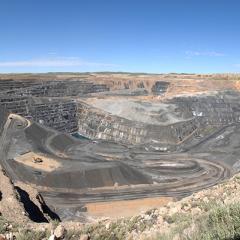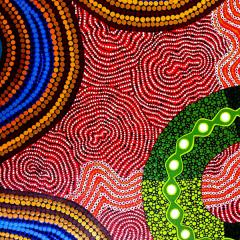Over the last 20 years, recognition of Indigenous peoples’ right to control, co-manage and benefit from resource development on their lands has increased, and one model of co-management currently attracting attention is Indigenous equity ownership of mining projects.
A new paper by researchers at The University of Queensland’s Sustainable Minerals Institute (SMI) examines co-ownership arrangements developing in several countries.

“Recent events, such as the destruction of ancient and sacred rock shelters at Juukan Gorge, have sparked renewed interest for greater Indigenous control of mining activities and drawn attention to Indigenous co-ownership of mining projects,” he said.
“We wanted to examine the implications of co-ownership, and to frame ideas for further discussion and research.”
The research team collated instances of Indigenous co-ownership in Canada, Papua New Guinea, Australia, South Africa, America and New Zealand. While equity participation differed across the countries, there were also some common lessons to be drawn.
“In Papua New Guinea, customary ownership is recognised in law and landowner equity has been an established part of mining and oil and gas since the 1980s.
“In Canada, we’re seeing equity arrangements influenced by increased Constitutional recognition of Indigenous rights in the early 2000s.
“Australia is different again - Indigenous co-ownership here depends a lot on the type of Indigenous land rights associated with a particular project, and equity ownership seems to be negotiated as part of agreements made between companies and Indigenous groups.
“In other words, the value proposition of Indigenous co-ownership, in any given case, will depend on the proposed corporate arrangements and governance structures, and the underlying land tenure systems and historical, social, political, and economic contexts.
“We see this paper as a first step, and in future research we would like to engage with Indigenous groups who are considering equity or have entered into a co-ownership arrangement.
“Ultimately, we hope our research provides a resource for Indigenous peoples considering equity participation,” Dr Kung said.
Indigenous co-ownership of mining projects: a preliminary framework for the critical examination of equity participation was published in the Journal of Energy and Natural Resources Law, read the report in full






